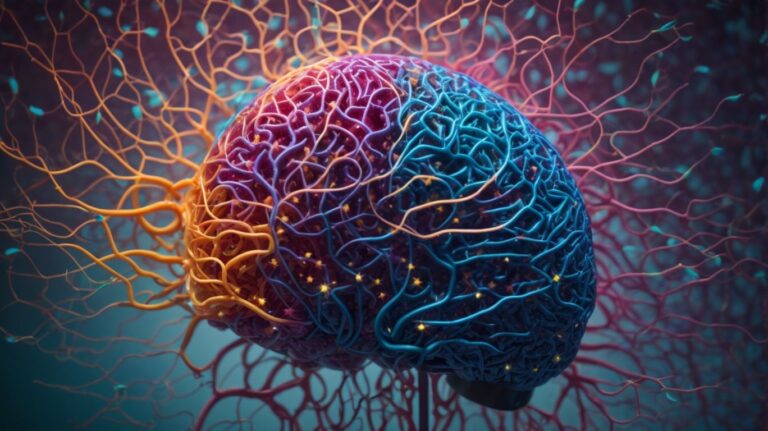Are you fascinated by the minds of criminals and the factors that drive their behavior? If so, you may want to consider studying criminal psychology.
In this beginner’s guide, we will explore the key concepts in criminal psychology, the steps to becoming a criminal psychologist, tips for studying the subject, and valuable resources to help you on your journey.
Whether you’re just starting out or looking to delve deeper into this field, this article has everything you need to know to get started.
Contents
- 1 Key Takeaways:
- 2 What is Criminal Psychology?
- 3 Why Study Criminal Psychology?
- 4 What are the Key Concepts in Criminal Psychology?
- 5 What are the Steps to Becoming a Criminal Psychologist?
- 6 What are Some Tips for Studying Criminal Psychology?
- 7 What are Some Resources for Studying Criminal Psychology?
- 8 Frequently Asked Questions
- 8.1 What is criminal psychology and why is it important to study?
- 8.2 How can I start studying criminal psychology?
- 8.3 What are some tips for success in studying criminal psychology?
- 8.4 What are some resources for studying criminal psychology?
- 8.5 Can anyone study criminal psychology, or is it only for those with a background in psychology?
- 8.6 What career opportunities are available for those who study criminal psychology?
Key Takeaways:
- Understand the key concepts of nature vs. nurture, criminal behavior theories, and forensic psychology to gain a comprehensive understanding of criminal psychology.
- Pursue a higher education in criminal psychology, gaining practical experience and staying up-to-date with current research and developments.
- Utilize resources such as books, online courses, professional organizations, and internships to supplement your studies and enhance your knowledge of criminal psychology.
What is Criminal Psychology?
Criminal psychology, also referred to as forensic psychology, is the study of the psychological factors underlying criminal behavior and the application of this understanding to criminal investigations and legal proceedings.
Forensic psychologists play a crucial role in evaluating criminal behavior, assessing offenders, and providing expert testimony in court.
They apply their expertise in psychology to legal matters, helping to understand the motives behind crimes, assess the mental state of individuals, and aid in the rehabilitation and treatment of offenders.
In criminal investigations, forensic psychologists may be called upon to create offender profiles, analyze crime scene evidence, and offer insights into the behavior of individuals involved in criminal activities.
They also collaborate with law enforcement agencies to develop strategies for interviewing suspects and witnesses, often utilizing their understanding of behavioral patterns to assist in solving cases.
Why Study Criminal Psychology?
Studying criminal psychology provides insights into the minds of offenders, the functioning of the legal system, and the work of criminal psychologists and FBI profilers, offering valuable contributions to understanding and addressing criminal behavior.
What are the Key Concepts in Criminal Psychology?
Key concepts in criminal psychology encompass the exploration of criminal behavior, its impact on criminal investigations, and the methodologies employed by FBI profilers, contributing to a comprehensive understanding of forensic and psychological dimensions.
Nature vs. Nurture
The debate between nature and nurture in criminal psychology delves into the interplay of genetic predispositions and environmental influences in shaping criminal behavior, offering nuanced perspectives on the origins of criminal conduct.
Researchers have sought to unravel the complex web of factors contributing to criminal behavior. This includes recognizing the role of genetics in predisposing individuals to certain traits, as well as acknowledging the impact of upbringing, socioeconomic status, and exposure to criminal influences.
The integration of genetic studies, neurobiological research, and psychological profiling has shed light on the intricate relationship between nature and nurture.
This has challenged traditional notions of inherent criminality and prompted a deeper examination of the environmental triggers that may interact with genetic predispositions to shape criminal conduct.
Criminal Behavior Theories
Criminal behavior theories in criminal psychology encompass various frameworks and models that seek to explain the motivational factors, triggers, and patterns underlying criminal conduct, contributing to a comprehensive understanding of deviant behaviors.
These theories serve as analytical tools that assist professionals in exploring the complex dynamics of criminal behavior.
They range from biological theories that examine genetic predispositions and neurological influences, sociological theories that emphasize the impact of social structures, to psychological theories looking into individual traits and experiences.
Understanding these theories enables law enforcement, psychologists, and criminologists to design effective intervention programs, aiding in crime prevention and rehabilitation efforts.
By integrating various theoretical perspectives, experts can develop multidimensional approaches to address the multifaceted nature of criminal behavior.
Forensic Psychology
Forensic psychology, an integral component of criminal investigations, encompasses the application of psychological principles and methodologies, including FBI profiling techniques, to understand and address criminal behavior within legal contexts.
This field provides vital insights into the motivations and mental processes of criminals, aiding law enforcement in solving complex cases.
FBI profiling, a significant aspect of forensic psychology, involves creating behavioral profiles of offenders based on crime scene evidence and patterns, helping to narrow down suspects.
Through psychological assessments and evaluations, forensic psychologists contribute to court proceedings by providing expert testimony and assessing the mental competence of defendants.
Their expertise also extends to developing effective rehabilitation programs for offenders based on individual psychological profiles.
What are the Steps to Becoming a Criminal Psychologist?
The path to becoming a criminal psychologist involves earning a relevant bachelor’s degree, gaining practical experience, pursuing a master’s degree in criminal psychology, and potentially advancing to a PhD or PsyD program, with institutions like Maryville University and certification boards like the American Board of Professional Psychology offering valuable pathways for aspiring professionals.
Earn a Bachelor’s Degree in Psychology or a Related Field
The initial step towards a career in criminal psychology involves obtaining a bachelor’s degree in psychology or a related field, with institutions accredited by the American Psychological Association in states like California and Michigan offering comprehensive programs for aspiring professionals.
A Bachelor’s degree in psychology or a relevant field provides a strong foundation for pursuing a career in criminal psychology. Accredited institutions ensure that the curriculum meets industry standards and equips students with the necessary knowledge and skills.
For instance, California boasts renowned universities such as Stanford University and the University of California, Berkeley, offering exceptional undergraduate programs in psychology.
In Michigan, institutions like the University of Michigan and Michigan State University are known for their rigorous psychology programs, preparing students for a diverse range of career pathways, including criminal psychology.
Gain Experience in the Field
Acquiring practical experience within the field of criminal psychology, such as internships or research roles, provides valuable exposure to the dynamics of the legal system and the work of forensic psychologists, contributing to professional development and insights into criminal behavior.
By immersing oneself in practical experiences, individuals can gain a deeper understanding of the complexities of criminal investigations, behavior patterns, and the application of psychological principles in legal contexts.
This exposure enables aspiring professionals to witness firsthand the interplay between psychology and the criminal justice system, offering valuable insights that cannot be fully comprehended through academic study alone.
Engaging in practical roles fosters the development of critical skills in assessment, intervention, and collaboration, essential for a successful career in criminal psychology.
Pursue a Master’s Degree in Criminal Psychology
Earning a master’s degree in criminal psychology from reputable institutions or specialized programs, such as those affiliated with the National Crime Operations Faculty, offers advanced academic training and practical preparation for professional roles within forensic psychology and criminal investigations.
Students pursuing a master’s degree in criminal psychology gain in-depth knowledge of the psychological, sociological, and criminological aspects of criminal behavior.
This specialized training equips them to understand and assess criminal minds, conduct forensic evaluations, and provide expert testimony in legal proceedings.
Reputable programs, such as those offered by the University of Southern California and John Jay College of Criminal Justice, provide a comprehensive curriculum covering areas like criminal profiling, offender rehabilitation, and victimology.
Students have the opportunity to engage in hands-on experience through internships with law enforcement agencies and forensic mental health facilities.
Consider a PhD or PsyD in Criminal Psychology
For aspiring criminal psychologists seeking advanced expertise and leadership roles, pursuing a PhD or PsyD in criminal psychology, with potential ties to institutions like the FBI or the National Crime Squad, offers comprehensive research opportunities and professional pathways.
Individuals pursuing a doctoral degree in criminal psychology not only gain in-depth knowledge about the intricate workings of the human mind and behavior, but they also have the chance to conduct groundbreaking academic research that contributes to the understanding and prevention of criminal behavior.
Being affiliated with esteemed institutions such as the FBI or the National Crime Squad can provide unparalleled access to resources, data, and mentorship from renowned experts in the field.
Such affiliations can open doors for collaborative research projects, internships, and potential career placements within these influential organizations.
Obtaining a PhD or PsyD in criminal psychology can lead to enhanced professional opportunities and a broader network of connections in law enforcement, legal advocacy, and academia.
Graduates often find themselves equipped with the specialized skill set and credibility required for leadership positions, expert consulting roles, and influential policymaking within the criminal justice system.
What are Some Tips for Studying Criminal Psychology?
Effective strategies for studying criminal psychology include taking relevant courses, broadening reading materials, gaining practical experience, and staying informed on current research and developments, fostering a comprehensive understanding of criminal behavior and the role of forensic psychologists within the legal system.
Take Relevant Courses
Enrolling in courses specializing in criminal psychology, forensic psychology, and criminal investigations provides foundational knowledge and skill development essential for understanding and addressing criminal behavior within legal contexts.
These courses equip individuals with a comprehensive understanding of the psychological, sociological, and legal aspects of criminal behavior.
The study of criminal psychology offers a unique blend of theoretical knowledge and practical application, enhancing the ability to analyze criminal motivations and behaviors.
Gaining insights into forensic psychology through coursework allows individuals to learn about the application of psychological principles within the criminal justice system, including assessing criminal responsibility and understanding the impact of trauma on victims and witnesses.
In addition, courses in criminal investigations cover the techniques and procedures used in criminal inquiries, providing a valuable foundation for those pursuing careers in law enforcement, private investigation, or legal professions.
Read Widely
Expanding reading materials to include a diverse range of sources, such as resources from the British Library and publications related to criminal investigations and the legal system, enriches understanding and perspectives on criminal psychology.
By exploring a variety of sources, including academic journals, research papers, and case studies, individuals can delve into the intricacies of criminal behavior. They can also delve deeper into the psychological aspects of criminal activities.
Incorporating literature on forensic psychology, criminology, and neurobiology broadens the scope of knowledge. It offers insights into the complex interplay between human cognition, emotions, and criminal actions.
Gain Practical Experience
Seeking practical experience, such as internships or volunteer opportunities affiliated with the National Crime Operations Faculty, offers firsthand exposure to the dynamics of criminal psychology and forensic practices, enriching academic insights and professional development.
Engaging in such experiences also fosters the development of critical analytical skills necessary in understanding criminal behavior and the psychological underpinnings of criminal acts.
These opportunities provide a foundational understanding of investigative techniques, courtroom procedures, and crime scene analysis, which are essential in the real-world application of criminal psychology.
By actively participating in these hands-on experiences, individuals can gain a comprehensive understanding of the complexities inherent in criminal behavior, thereby enhancing their academic learning and preparing them for the professional demands of the field.
Stay Informed on Current Research and Developments
Remaining abreast of current research and industry developments through resources such as the American Psychological Association and reports from the U.S. Bureau of Labor Statistics enables students to engage with the evolving landscape of criminal psychology and forensic practices.
By staying informed, individuals can be cognizant of the latest methodologies, trends, and breakthroughs in the field. Subscribing to academic journals such as the Journal of Forensic Psychology and The Psychologist can provide access to cutting-edge research articles and case studies, granting valuable insight into the practical applications of theoretical knowledge.
What are Some Resources for Studying Criminal Psychology?
Resources for studying criminal psychology encompass books, journals, online courses, webinars, professional organizations, conferences, and opportunities such as internships and volunteer experiences, with platforms like Netflix’s ‘Mindhunter’ and publications from the American Psychological Association (APA) providing valuable insights and educational materials.
Books and Journals
Accessing books and journals from reputable sources, such as the British Library, on topics related to criminal psychology and forensic practices offers valuable insights and academic enrichment for students and aspiring professionals in the field.
Exploring criminal psychology through literature delves into the complexities of the human mind, behavioral patterns, and the correlation with the commission of crimes.
This can be seen in journals such as ‘Criminal Justice and Behavior’ and ‘Law and Human Behavior’, where readers can delve into studies on criminal profiling, the psychology of offenders, and the impact of environmental factors.
In addition, books by renowned authors like Robert D. Hare, John E. Douglas, and Mary A. Juriloff offer in-depth analysis of topics such as psychopathy, forensic psychology, and the application of psychological principles in criminal investigations.
Online Courses and Webinars
Engaging in online courses and webinars offered by renowned institutions and organizations, including the American Psychological Association (APA), provides accessible and comprehensive educational opportunities for individuals interested in criminal psychology and forensic practices.
These digital learning platforms offer the convenience of flexible scheduling, allowing students to pursue their studies without geographical constraints.
The APA and other reputable providers deliver courses that delve into various aspects of criminal psychology, such as criminal profiling, behavioral analysis, and forensic assessment techniques.
Participants can benefit from the expertise of leading professionals in the field, gaining insights into the latest research and methodologies.
Moreover, online courses and webinars often incorporate interactive elements, case studies, and practical exercises to enhance learning experiences and skill development.
Professional Organizations and Conferences
Involvement in professional organizations and conferences related to criminal psychology, such as those affiliated with the National Crime Squad, enables networking, knowledge exchange, and exposure to cutting-edge advancements within the field of forensic practices and criminal investigations.
These platforms offer a unique opportunity to connect with like-minded professionals, experts, and influential figures in the industry, fostering collaborative relationships and mentorship possibilities.
Participation in conferences facilitates access to the latest research, methodologies, and technologies, enableing individuals to stay abreast of current trends and contribute meaningfully to the evolution of criminal psychology.
Through affiliations with renowned organizations, students and professionals can gain visibility, credibility, and access to exclusive resources that can significantly enhance their academic and career pursuits.
Internships and Volunteer Opportunities
Participation in internships and volunteer opportunities, aligned with the guidelines from the U.S. Bureau of Labor Statistics, offers practical exposure to the realities of criminal investigations and forensic practices, fostering experiential learning and professional growth.
These practical engagements provide students with the chance to apply theoretical knowledge in real-world scenarios, refining their analytical and critical thinking skills.
Internships and volunteer work facilitate networking with professionals in the field, enabling students to gain mentorship and valuable insights into the day-to-day operations of criminal psychology.
Exploring internship programs at renowned forensic institutions or volunteering with organizations dedicated to victims’ advocacy can greatly enhance a student’s understanding of criminal psychology and its applications.
Frequently Asked Questions
What is criminal psychology and why is it important to study?
Criminal psychology is the study of criminal behavior and the psychological factors that influence it. It is important to study because it can help us understand why people commit crimes and how to prevent and address criminal behavior.
How can I start studying criminal psychology?
To start studying criminal psychology, you can take introductory courses offered at universities or online, read books and articles on the subject, and join relevant organizations and forums to connect with others in the field.
What are some tips for success in studying criminal psychology?
Some tips for success in studying criminal psychology include staying organized, actively participating in class discussions, seeking out hands-on learning opportunities, and staying up to date with current research and developments in the field.
What are some resources for studying criminal psychology?
There are many resources available for studying criminal psychology, such as textbooks, academic journals, online courses, and podcasts. You can also attend conferences and workshops, join professional organizations, and network with experts in the field.
Can anyone study criminal psychology, or is it only for those with a background in psychology?
Anyone can study criminal psychology, regardless of their background or education. However, having a background in psychology can provide a strong foundation for understanding the principles and theories of criminal psychology.
What career opportunities are available for those who study criminal psychology?
Studying criminal psychology can lead to various career opportunities, including working as a forensic psychologist, criminal profiler, corrections counselor, or researcher. It can also provide a solid foundation for further studies in psychology or law.




